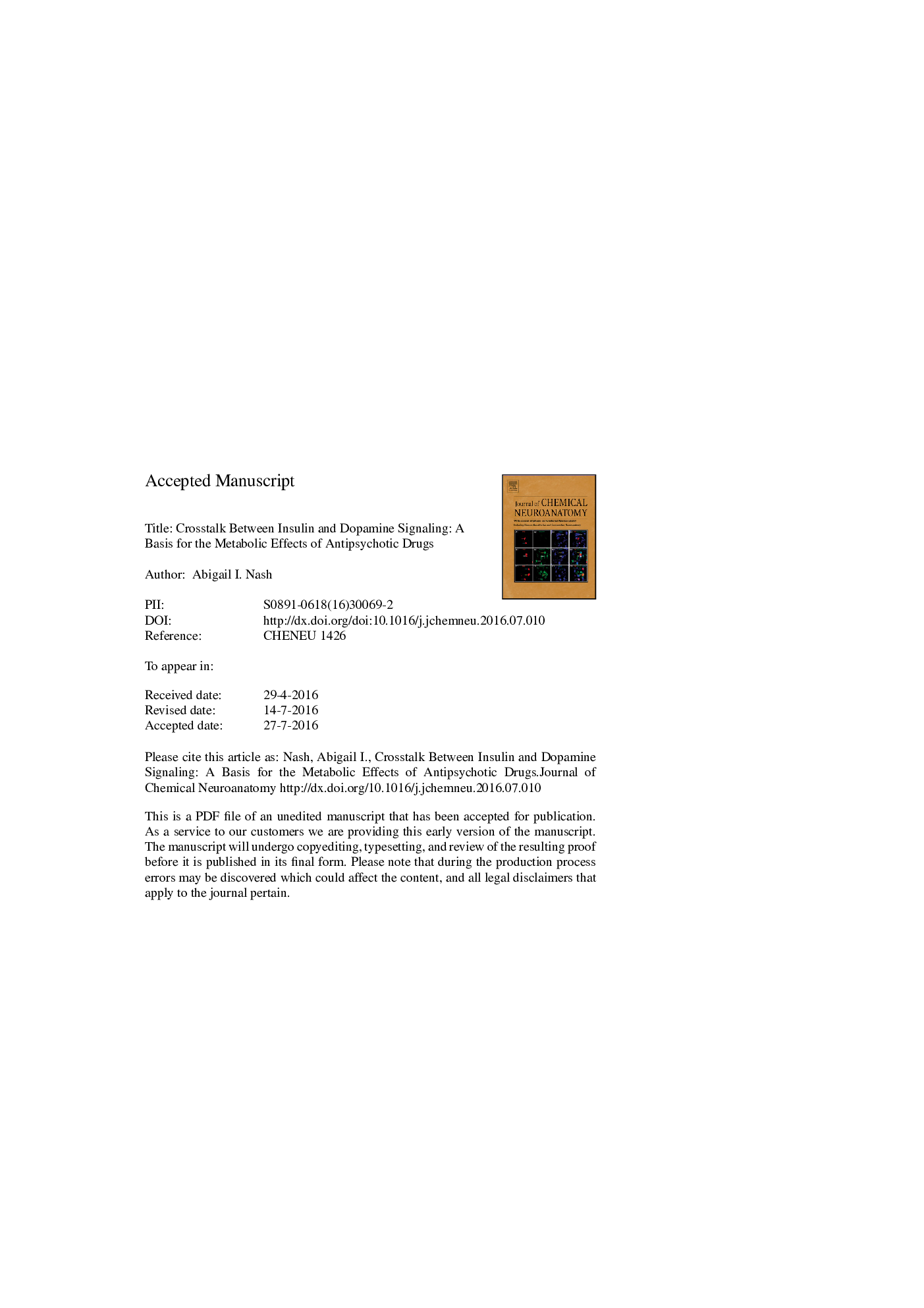| Article ID | Journal | Published Year | Pages | File Type |
|---|---|---|---|---|
| 5512689 | Journal of Chemical Neuroanatomy | 2017 | 27 Pages |
Abstract
In the setting of rising rates of obesity and metabolic syndrome, characterized in part by hyperinsulinemia, it is increasingly important to understand the mechanisms that contribute to insulin dysregulation. The higher risk for metabolic syndrome imparted by antipsychotic medication use highlights one such mechanism. Though there is great variation in the number and types of signaling pathways targeted by these medications, the one common mechanism of action is through dopamine. Dopamine's effects on insulin signaling begin at the level of insulin secretion from the pancreas and continue through the central nervous system. In a reciprocal fashion, insulin also affects dopamine signaling, with specific effects on dopamine reuptake from the synapse. This review probes the dopamine-insulin connection to provide a comprehensive examination of how antipsychotics may contribute towards insulin resistance.
Keywords
DARPP-32mitogen-activated protein kinase/ERK kinasePP1PDK1GSK-3SOSGIRKGRB2D2RpKaCaMKIIIRSPI3KPP2AERKDATcAMPCyclic adenosine monophosphateAktSchizophreniaDopamine transporterinsulinAntipsychoticDopamineextracellular-signal regulated kinaseMEKHyperinsulinemiaphosphoinositide-dependent kinase 1protein phosphatase 1protein phosphatase 2Aprotein kinase Aprotein kinase Bgrowth factor receptor-bound protein 2calcium/calmodulin-dependent kinase IIglycogen synthase kinase-3Dopamine receptor
Related Topics
Life Sciences
Biochemistry, Genetics and Molecular Biology
Biochemistry
Authors
Abigail I. Nash,
